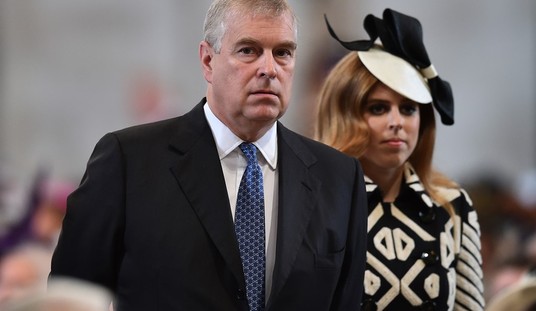I'm going to gloss over all the criticism of Trump's tariffs from the left because, well, so few of the critiques are made in good faith.
There are liberal free traders out there. Establishment economists who have consistent theories of how the economy works and actually believe what they say--yes, such people DO exist, even though they are no longer influential in their party--to whom I would listen and give respect in a one-on-one conversation.
But most liberal critics of Trump's trade strategy are critics of Trump and would say exactly the opposite of what they are saying now if Trump had been dropping all trade barriers and going tariff-free. So forget them.
Forget also the people who will defend Trump to the death regardless of what he does, assuming that he is infallible or that giving an inch to his critics in any way is a betrayal of all that is good and holy. Only one human being has fit that category, and Trump's fallibility was on full display in 2020. Remember Anthony Fauci?

Ignore the ideologues and you still have a debate worth having, but in most cases the loudest voices are shouting past each other, not addressing the ideas and concerns of the other side.
Tariffs work. This is why. They are LEVERAGE.https://t.co/4dPO8EiPAO
— Bill Mitchell (@mitchellvii) April 14, 2025
There are lots of free-trading conservatives who are deeply concerned about what Trump is doing to the current trading regime and worry that he is following the Smoot-Hawley strategy of trade: American first means shutting down trade as much as possible.
As I have written a number of times, I have remained mostly agnostic on Trump's trade strategy because I am not exactly certain what he is trying to accomplish. I THINK I know, but what I have is a theory. I could make a strong case for what he is doing, a strong case against it, and a cautious case for it.
But each of those cases is based on a different set of facts, and while a lot of people think it is obvious what Trump is doing, there is plenty of evidence that any one theory is clearly wrong. Or right.
Because Trump is a negotiator, and negotiators, by nature, tend to keep the details of what they want close to their vest. The more uncertainty the other side has about what the other side wants as their bottom line, the more room for negotiations there will be.
A lot of people I respect are deeply angry and worried about Trump's tariff rhetoric because they fear Trump is walking us into the dissolution of a world trading regime that, for all its flaws, has been a powerful engine for economic growth both here and abroad. It's true that there are a lot of losers in the current trading regime and that we shouldn't ignore that fact, the people arguing for maximum economic freedom have a very strong case that Trump is risking killing the goose that laid the golden egg.
Joe Biden did much to hamper our economy and stifle economic growth, and his policies were a recipe for disaster. But when he and his economic team insisted that the US was a roaring success compared to our peers. That has more to do with the even more insane economic policies of our competitors, but it remains the case that, economically, the US dominates the world.
They fear that the trading regime is fragile and that if the US pushes, our competitors will do something stupid and bring down the greatest force for economic growth in world history.
Okey dokey. I get it. And it is hardly impossible that they are right. There is a good case for their argument.
But what this argument assumes is that our competitors are halfhearted in their desire to access the US market and will shrug their shoulders and let the world trading regime fall apart and that Trump is indifferent to US businesses' desire for access to world markets.
The evidence suggests that neither of these two assumptions is correct. Our economy is 25% of the world's GDP, which is huge, but even more importantly, our consumer market is closer to 40%. Nobody is going to walk away from that without working hard. Emmanuel Macron begged for French businesses to pull investments from the United States, and they basically laughed at him. They wouldn't want to give up access to France's market, of course, but the US market is, for many of them, even more important.
French President Macron wants European companies to end all American investments.
— Daniel Turner (@DanielTurnerPTF) April 4, 2025
Two can play this game, Emmanuel.
President @realDonaldTrump should immediately cancel the $5 billion U.S. loan for France's TotalEnergies African LNG project. pic.twitter.com/HYoTPFALe0
If what Trump is doing, as I think he is, is forcing our trading partners to the negotiating table for more favorable trade deals then what he is doing is high risk, but very high reward. I expect the end goal is a modified trade regime with slightly asymmetric tariffs benefiting the US, not our "allies." The justification will be that we guarantee the trade routes on the seas.
If Trump is really pursuing a policy of "autarky"--full self-sufficiency--it is a fool's errand. If he is rebalancing trade in our favor, it could extend flagging US dominance for an extra 50 or more years and set China back for decades.
The problem with arguments I see all over the internet is that people are starting from different understandings of Trump's goals, and I think the evidence for Trump's goal being autarky is diminishing. He keeps bragging about how everybody wants a deal, which seems to be good evidence that he wants a deal, too.
For all the talk about tariffs being "beautiful," it's clear that he doesn't want the end product to be a high tariff regime across the board. And if that is true, then much of the storm and strife is over nothing.
Trump could still fail to get GOOD deals, but he has a track record of winning.
So I get back to wait and see. Like making sausage, the process isn't pretty. But you won't know what to think until you taste the bratwurst.








Join the conversation as a VIP Member